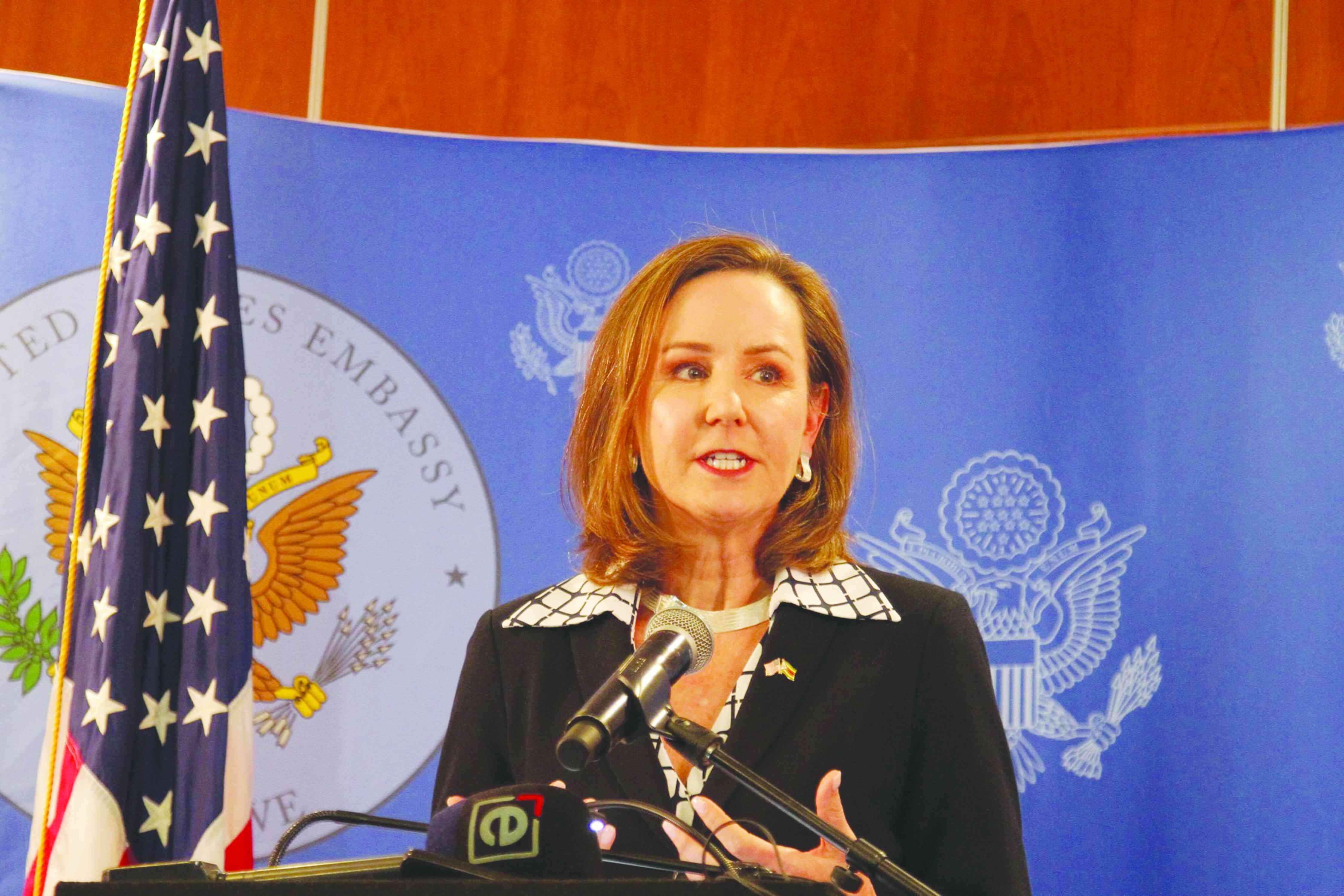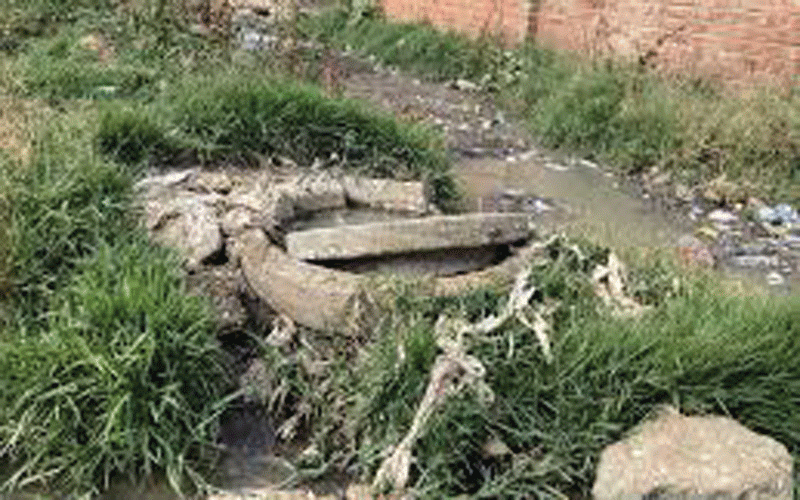
On the sidelines of the Zimbabwe International Trade Fair in Bulawayo last week, Zimbabwe Independent reporter Nizbert Moyo (NM) spoke to Pamela Tremont (PT), the United States (US) Ambassador to Zimbabwe on a wide range of issues. Tremont is hopeful measures undertaken so far may help improve the country’s investment climate. But she is worried about the arrests and intimidation of journalists and civic society leaders. Below are excerpts from the interview:
NM: Based on your assessment, what are the most pressing obstacles to strengthen US-Zimbabwe relations, and where do you see the greatest potential for collaboration?
PT: As secretary Marco Rubio said in his Independence Day message to Zimbabwe, a strong trade-based relationship is built on strong democratic institutions. So, I think the biggest obstacle is the uncertainty that arises when US companies and investors see journalists being jailed. The perception that there is a biased rule of law here gives investors a lot of nervousness because they don’t know if they have a problem they can rely on the courts to resolve it for them. And so, as much as we would like to improve the trade relations, we also need to fix those underlying issues that tend to spook investors.
NM: There remains a significant public interest in the Zimbabwe Democracy and Economic Recovery Act (Zidera). Could you clarify how this legislation operates and its intended impact on Zimbabwe’s development trajectory?
PT: Zidera is a piece of legislation that governs when the US government is allowed to support further concessional financing for Zimbabwe. Actually, it has never been involved because Zimbabwe defaulted on its loans a couple of years before Zidera was ever passed and so Zimbabwe is not eligible for concessional financing because of its own default. So, Zidera outlines what we would be looking for in order to support further financing but actually, the question has never come up because of the default situation.
NM: Following the termination of the Zimbabwe sanctions programme in March 2024, how does the Global Magnetisky Programme function to address human rights abuses and corruption?
PT: Well, the transition from the Zimbabwe sanctions executive order to the Global Magnetisky Programme was a real milestone in our relationship. We had almost 100 people on the previous list. Now there are only 11. Those are only 11 people out of more than 700 people on our Global Magnetisky Programme list from 44 countries. What it means is those 11 people cannot have personal bank accounts in the US. So, there are no trade restrictions between our two countries. There is no reason that those global sanctions on those 11 individuals should prevent further trade and investment between our two countries, which is what we are really aiming for because it is such a win-win situation.
NM: Could you outline initiatives the US Embassy is currently supporting to promote economic growth in Zimbabwe?
- Government frets over dwindling correspondent banking relationships
- Sanctions, corruption cripple Zim
- The economic impact of Zidera
- Mnangagwa to miss US-Africa summit
Keep Reading
PT: Since independence, we have invested US$5 billion in keeping people healthy, feeding hungry people and helping farmers get the most out of their land. We have been supporting the economy and growth through those means for many years. Under our new administration, we are transitioning from an assistance-based relationship to one based more on trade and partnership. So, after 45 years of such success, we are looking forward to working with the government, turning over responsibility for some of those issues to the government and focusing more on trade and investment.
NM: How is the Embassy facilitating trade and investment between the US and Zimbabwe? What specific opportunities would you highlight for Zimbabwean businesses seeking partnerships with American firms?
PT: One of the things that I have been focused on since I arrived last July is improving the investment climate in Zimbabwe. (This is) because US companies can look anywhere in the world to invest their money. We want them to look at Zimbabwe and see it as the most stable, promising, least risky place for them to invest. We have been working with the government, the Zimbabwe Investment and Development Agency (Zida), the private sector, even academia to talk about what tangible things we can do to improve the investment climate so that we attract not just high quality US investors, but high quality investors from around the world.
NM: What forms of assistance does the US provide to strengthen democracy, good governance, and human rights in Zimbabwe?
PT: We firmly believe economic prosperity is built on strong democratic institutions because companies are looking for unbiased rule of law, anti-corruption efforts, and stability in the economy that good democratic institutions provide. We have frank and respectful conversations with the government. We are talking about reforms in the context of the African Development Bank structured dialogue on arrears clearance and of course, we talk to civil society to discuss their problems and see how we can advocate for things that benefit everybody in Zimbabwe and build that strong democratic foundation for a strong economy.
NM: With the reduction of USAid programmes, does the US government anticipate reinstating or expanding development assistance to Zimbabwe in the near term?
PT: All of our assistance is still under review in the United States. Many of the programmes have been terminated, but many of them, especially in the life saving and humanitarian fields, are continuing. It remains to be seen how that will work out in the long run beyond this fiscal year and into the next. But in the meantime they are still going on. It is clear from the new administration that our task is to transition from an assistance based to a partnership based relationship. So, we have been talking to the government about how the government can take more responsibility for some of those health programmes that we have been financing for quite some time.
NM: What are the Embassy’s flagship programmes in improving health care delivery and education in Zimbabwe?
PT: Most of our assistance over the past 20 years in particular since the beginning of the US President’s Emergency Plan for Aids Relief (PEPFAR) has been in the health care space. We keep 1,2 million people alive by providing antiretroviral treatment that keeps them healthy and in the workforce. We have also sponsored the Impilo electronic health record system, which allows more patients to be seen every day. The life-saving data is able to be pulled up really quickly. We support labs so that they can do viral testing and make sure people's medication is working and if not, it can be adjusted so that they don’t pass HIV onto their loved ones and their infants and their family members. So, we have seen a lot of success. Zimbabwe has already hit the 95-95-95 goals for HIV and we attribute a lot of that to PEPFAR.
NM: How is the US government encouraging American private sector investment in Zimbabwe’s infrastructure?
PT: We are encouraging the improvement of the investment climate here so that companies in every sector will find Zimbabwe an attractive investment destination. Companies want certainty: regulatory certainty, tax policy certainty, and exchange rate certainty. They don’t want to deal with corruption and too much regulation. So, we are working with the government on how we can find tangible improvements in those areas to attract investment in every space.
NM: What about in the energy sector and transport and digital connectivity?
PT: We are really happy that Starlink is here and I think there is a lot more room for Starlink to grow. I understand there are other low orbit satellite communications companies that are interested in coming into this space as well but we are not targeting any particular sector for US companies; we just want to make it a friendly business climate.
NM: During your July 2024 remarks, you emphasised investment promotion as a priority. What milestone has this initiative achieved thus far?
PT: As I said, we have been working with the government and private sector and Zida and everybody in trade organisations such as the American Chamber of Commerce to discuss what tangible things we can do to improve the investment climate here. We are really excited that Zida is forming a single window for investors to ease the registration of businesses. We think that is really promising. We have brought a lot of people together from different ministries and trade organisations who had never met each other before so that they can find solutions to some of these problems instead of just always blaming the issues on somebody else, which happens in any bureaucracy. So, just having that convening authority, bringing people together to talk about issues and bring out solutions is our priority right now.






